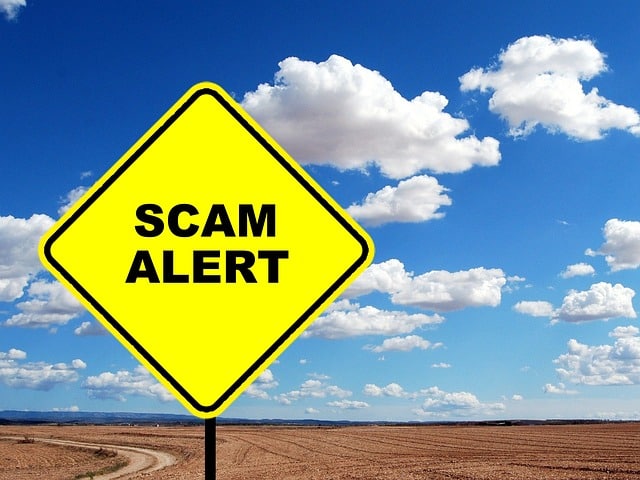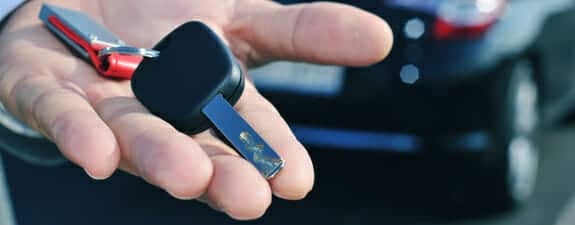
What is Driving Test Fraud?
Definition of Driving Test Fraud
Driving test fraud refers to the act of attempting to cheat the driving test system in order to obtain a driving licence without meeting the necessary driving standards. It involves providing false information, using fraudulent means, or engaging in deceptive practices during the driving test process. This can include impersonating another person to take their test, using a Bluetooth device to receive answers, or using a lookalike to take the test.
Different Types of Driving Test Fraud
There are several different types of driving test fraud that can be committed:
- Impersonation: This type of fraud involves someone taking another person’s test in their place. It can be done by using a lookalike or by providing false identification to deceive the examiners.
- Bluetooth Devices: This type of fraud involves using a Bluetooth device to receive answers to the multiple-choice questions in the theory test. Candidates may use hidden earpieces or other covert methods to cheat during the test.
- Fake licences: This type of fraud involves using a fake licence to pass the practical test. Candidates may obtain counterfeit licences or alter genuine licences to deceive the examiners.
Consequences of Driving Test Fraud
The consequences of driving test fraud can be severe. If caught, the perpetrator can face legal penalties, including prison sentences and fines. Additionally, the Driving Standards Agency (DVSA) has the authority to revoke any illegally obtained licences. These consequences aim to deter individuals from engaging in fraudulent activities and maintain the integrity of the driving test system.
Legal Implications of Driving Test Fraud
In the UK, driving test fraud is considered a criminal offence. Engaging in any form of fraudulent activity during the driving test process, such as providing false information, using false documents, or impersonating someone else, is illegal. The legal implications of driving test fraud can vary depending on the severity of the offence and the specific circumstances involved. Perpetrators can face fines, driving bans, and even imprisonment. The legal system takes driving test fraud seriously to ensure the fairness and reliability of the licencing process.
How Does Driving Test Fraud Occur?
Driving test fraud occurs when individuals attempt to pass a driving test without possessing the necessary skills or knowledge. There are several common methods used by fraudsters to commit driving test fraud. These include:
- Bribing an examiner: This method involves a learner driver offering money or other incentives to an examiner in exchange for a passing grade. This is the most prevalent form of driving test fraud.
- Hiring a proxy: Fraudsters may hire someone else to take the test on their behalf. This can be done by paying a third party to impersonate the candidate or by using a friend or family member to take the test.
- Using fake documents: Fraudsters may use forged or altered documents to deceive the examiners. This can include using a fake driver’s licence or other forms of identification to pass the test.
Technology plays a significant role in driving test fraud, making it easier for fraudsters to cheat. Some of the ways technology is used in driving test fraud include:
- Bluetooth earpieces: Fraudsters use Bluetooth earpieces to provide theory test answers to candidates during the examination. This allows them to receive real-time assistance without the examiner’s knowledge.
- Automated computer software: Fraudsters utilise automated computer software to monitor the DVSA system, which is meant for driving schools. This software helps them grab test slots as soon as new dates are added or existing bookings are cancelled, giving them an unfair advantage in securing test appointments.
Social media platforms are also being exploited by fraudsters to advertise their services and facilitate driving test fraud. Platforms such as TikTok and Facebook are used to reach potential customers and offer illegal assistance in passing the driving test. Fraudsters charge fees ranging from £720 to £4,200 for their services.
In summary, driving test fraud occurs through various methods such as bribing examiners, hiring proxies, using fake documents, and taking the test multiple times. Technology, including Bluetooth earpieces and automated software, is used to cheat during the test. Social media platforms are utilised by fraudsters to advertise their services and connect with potential customers. These fraudulent activities undermine the integrity of the driving test system and pose risks to road safety.
Warning Signs of Driving Test Fraud
Driving test fraud is a serious offence that can have severe consequences for learner drivers. It is crucial to be aware of the warning signs of driving test fraud to protect oneself and others from becoming victims. Some of the warning signs include:
- Offering to book a driving test for you without you having to take any lessons.
- Offering to book a driving test for you at a discounted rate.
- Offering to book a driving test for you at a location that is not your local test centre.
- Offering to book a driving test for you on a date that is not available to the general public.
- Offering to book a driving test for you with a different examiner than the one assigned to you.
How to Identify if a Driving School is Involved in Driving Test Fraud
If you suspect that a driving school is involved in driving test fraud, there are several warning signs to look out for. These signs can help you identify if a driving school is engaging in fraudulent activities:
- The driving school offers to book a driving test for you without you having to take any lessons. Legitimate driving schools emphasise the importance of proper training and practice before taking the test.
- The driving school offers to book a driving test for you at a discounted rate. This could indicate that the school is cutting corners or engaging in illegal practices to secure test passes.
- The driving school offers to book a driving test for you at a time or location that is not available to the general public. Test availability is typically determined by the test centres, and any deviation from the standard process may be a red flag.
- The driving school offers to book a driving test for you without you having to provide any proof of identity. Proper identification is a requirement for taking a driving test, and any school that bypasses this step may be involved in fraudulent activities.
What to Do if You Suspect Driving Test Fraud
If you suspect that a driving school is involved in driving test fraud, it is crucial to take action to prevent others from falling victim to these fraudulent practices. Here are the steps you can take:
- Report the driving school to the Driver and Vehicle Standards Agency (DVSA). The DVSA is responsible for regulating driving instructors and schools, and they have the authority to investigate and take appropriate action against fraudulent activities.
- Report the driving school to the police. Driving test fraud is a criminal offence, and reporting it to the police can help initiate a formal investigation.
- Report the driving school to the local Trading Standards office. Trading Standards offices are responsible for enforcing consumer protection laws, and they can take action against businesses engaged in fraudulent practices.
- Provide as much information as possible when reporting the suspected fraud. This may include details about the driving school, any evidence or documentation you have, and any interactions or conversations that raised suspicions.
By taking these steps, you can contribute to the prevention and detection of driving test fraud, protecting the integrity of the testing process and ensuring the safety of learner drivers on the road.
Avoiding Driving Test Fraud
Steps to Protect Yourself from Driving Test Fraud
To protect yourself from driving test fraud, there are several steps you can take:
- Research the driving school: Before signing up for driving lessons, it is important to thoroughly research the driving school you are considering. Check their credentials and reputation. Look for online reviews and ask friends and family for recommendations.
- Verify registration with DVSA: Ensure that the driving instructor is registered with the Driver and Vehicle Standards Agency (DVSA). This can be confirmed by checking if they display their registration number in their vehicles.
- Check instructor credentials: Ask the driving school for proof of identity and qualifications of the driving instructor. All instructors must have a valid driving instructor’s licence and be registered with the DVSA.
- Confirm insurance coverage: Request proof of insurance from the driving instructor. It is essential that all instructors have valid insurance to teach learners.
- Request criminal record Checks: Ask the driving instructor for proof of criminal record checks. This helps ensure that you are receiving instruction from trustworthy individuals.
Factors to Consider When Choosing a Driving School
When choosing a driving school, there are several factors to consider:
- Reputation: Ensure that the driving school has a good reputation. Look for positive reviews and feedback from previous students. A reputable driving school is more likely to provide quality instruction and adhere to ethical practices.
- Cost: Consider the cost of the driving school and ensure that it fits within your budget. However, be cautious of extremely low prices, as they may indicate subpar instruction or potential fraud.
- Location: Choose a driving school that is conveniently located for you. This will make it easier to attend lessons and practice sessions without significant travel time.
- Qualifications: Verify that the driving instructor is registered with the DVSA. This ensures that they have the necessary knowledge and skills to teach you effectively.
- Insurance: Confirm that the driving instructor has valid insurance. This protects both you and the instructor in case of any accidents or incidents during your lessons.
- Policies and procedures: Inquire about the driving school’s policies and procedures. Understand their cancellation policy, lesson scheduling, and any other important guidelines they have in place.
- Pricing and payment options: Discuss the driving school’s pricing structure and available payment options. Make sure you are comfortable with the payment terms before committing to lessons.
How to Safeguard Against Becoming a Victim of Driving Test Fraud
To safeguard yourself against becoming a victim of driving test fraud, follow these guidelines:
- Be cautious of online ads: Do not respond to any online ads that offer to help you pass your driving test without taking the test. These are often fraudulent schemes aimed at taking advantage of unsuspecting learners.
- Protect personal information: Do not provide your personal information, such as your name, address, or phone number, to anyone offering to help you pass your driving test. Legitimate driving schools and instructors will not require this information for such purposes.
- Avoid paying for fraudulent services: Do not pay for any services that promise to help you pass your driving test without taking the test. Legitimate driving schools will provide proper instruction and guidance to help you prepare for the test.
- Stay vigilant at the test centre: Be aware of any suspicious activity at the test centre, such as individuals wearing earpieces or using mobile phones during the test. If you notice anything suspicious, report it to the DVSA or the police.
By following these steps and considering the factors mentioned, you can protect yourself from driving test fraud and choose a reputable driving school that will provide you with the necessary skills and knowledge to pass your driving test legitimately.
Legal Consequences for Individuals Involved in Driving Test Fraud
Individuals who are found guilty of driving test fraud may face a range of legal consequences. These can include fines, imprisonment, and disqualification from driving. In addition, they may be required to retake their driving test in order to regain their licence.
In the UK, those who are found guilty of driving test fraud can face up to two years in prison and/or a fine. Their driving licence may also be revoked, and they may be banned from driving for a period of time. These legal consequences serve as a deterrent to individuals who may consider engaging in driving test fraud.
Furthermore, individuals involved in driving test fraud may also face social and professional consequences. Their reputation may be tarnished, and they may find it difficult to secure employment or insurance in the future. This can have long-term effects on their personal and financial well-being.
Overall, driving test fraud has serious and far-reaching consequences. It not only compromises road safety but also has legal, social, and professional implications for those involved. It is crucial to maintain the integrity of driving tests and take strict measures to prevent and punish driving test fraud.
Summary of Key Points
- Driving test fraud is a serious issue that risks the safety of fraudsters and other road users.
- There have been numerous investigations, arrests, convictions, and revocations of driving licences related to driving test fraud.
- Examples of fraud include impersonation, illegal driving instructors, and the use of Bluetooth devices to cheat.
- Smart Drive UK is committed to helping UK learner drivers protect themselves from driving test fraud.
- Learners should be aware of the risks, follow the rules and regulations of the road, and report suspicious activity.
Encouragement to Contact Smart Drive UK
If you have any questions or concerns about driving test fraud, it is encouraged to contact Smart Drive UK. Their team of experts is available to provide advice and support to ensure that learners are taking the necessary steps to protect themselves. Smart Drive UK may provide regular updates on their website and social media channels to keep learners informed about the latest developments in driving test fraud.
In conclusion, it is crucial for UK learner drivers to be aware of the risks and consequences of driving test fraud. By following the rules and regulations of the road, reporting suspicious activity, and staying informed about the latest developments, learners can protect themselves from fraud. Contacting Smart Drive UK for further information or assistance with driving test fraud concerns is highly recommended.



